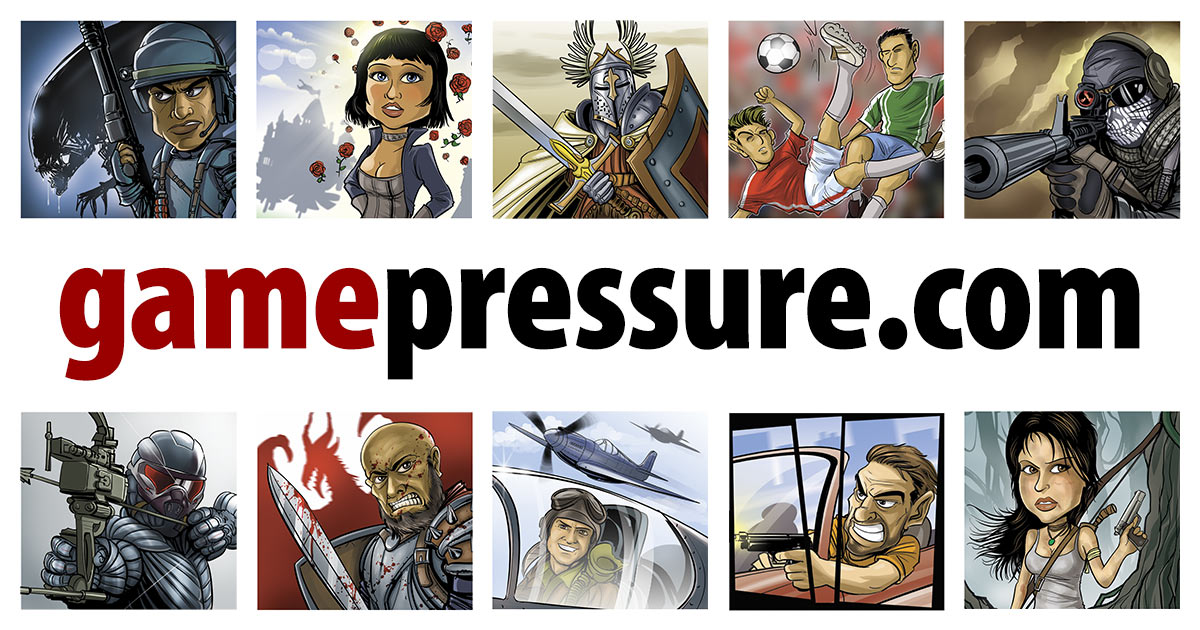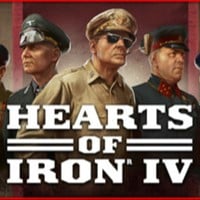Hearts of Iron 4: Interesting nations
Last update:
The developers of the game favored the nations that had the biggest impact on the World War II. Those nations are significantly more complex than the rest of the ones available in the game, meaning that playing them will be both more interesting and challenging. Interwar period represents the remains of the policy of colonization, meaning that some of the European countries are controlling terrains on different continents. This will give you better access to infrastructure and resource production possibilities, but comes with increased difficulty when it comes to governing those lands and military actions. If different countries demand terrains on multiple continents at once, you will have a hard time understanding and deciding what to do. From the beginning of the game you should focus on finding powerful allies and acquiring as many guarantees. Those will give you a relative sense of security after the global conflict starts.

Note that the most interesting countries have additional negative modifiers associated with their meaning in the previous war. Your task will be to get rid of those as quickly as possible so that they won't hinder your actions in the future. After eliminating them you will quickly notice the advantage that the positive modifiers give you against other countries.
France
Leader: Eduard Daladier
Ideology: Democratic
Government: Democratic Republic
Elections: April 1936
Ruling party: Parti Radical
Icon | Characteristic | Significance |
| Victors of the Great War | Recruitable Population: -0,30% Land Doctrine Research Time: +75% |
| Disjointed Government | Daily Political Power Cost: +0,80 National Unity: -10% |
| Protected by the Maginot Line | Max Planning: +25% Planning Speed: -25% |
France lives in a relative sense of security after the end of the World War I. Hidden behind the Maginot Line they have no idea about the dangers of the German Reich. While playing France you must start by changing the rules of recruitment, which will allow you to constantly increase your military capabilities. Note the huge slowdown of the Land Doctrine research time. To level the playing field you should focus on other aspects of the military power and build powerful air forces. France has a very low national unity index. You should increase it with the help of national focuses directed at the said index. If you don't do that your country will quickly surrender after the global conflict starts. You should also note that the low political power growth of France is slowed even more. You must complete research projects that will overcome it, otherwise your diplomatic actions will be paralyze for a long time. France has very interesting defensive properties that allow you plan your military operations quite well in the short term. This country doesn't cope well in the event of a sudden attack. Anticipate the intentions of your enemies and try to be ready for anything, and if the enemy doesn't leave you a choice remember that attack is the best defense.
United Kingdom
Leader: Neville Chamberlain
Ideology: Democratic
Government type: Democratic Republic
Elections: November 1939
Ruling party: Conservative party
Icon | Characteristic | Significance |
| British Stoicism | Ideology Drift Defense: +50% Can create factions |
| The War to End All Wars | Recruitable Population Factor: -25% |
| King George V | National Unity: +15% |
United Kingdom is characterized by a relatively high national unity, which is why you shouldn't worry about a sudden change of ideology that will bury your alliances. It is worth noting that playing as this nation allows you to create factions. This is very important from the viewpoint of foreign policy and strengthening the bond between countries in Europe. A major flaw of the British policy is their low rate of human resources that must be accumulated in three years. Change the rules of recruitment and prepare your country thoroughly for the upcoming war. You should focus on developing air forces, but you mustn't forget about powerful land forces as well. With the help of the monarch the national unity will be increased, allowing you to perform longer military actions, even when some of them aren't as successful as you wanted them to be.
United States
Leader: Franklin Delano Roosevelt
Ideology: Democratic
Government type: Democratic Republic
Elections: November 1936
Ruling party: Democratic party
Icon | Characteristic | Significance |
| Home of the Free | Ideology Drift Defense: +20% Cannot join factions led by another ideology. Can create their own faction |
The Great Depression | Daily Political Power cost: +1 Consumer Goods Factories: 30% Recruitable Population Factor: -50% | |
| Undisturbed Isolation | Consumer Goods Factories: 40% Civilian Factory construction speed: -50% Military Factory construction speed: -50% Civilian Factory conversion cost: +50% Military Factory conversion cost: +50% Declare war tension limits: +100% Tension limit - join faction: +20% Tension limit - Lend-Lease: +50% Tension limit - Send volunteers: +20% Tension limit - Guarantee: +75% |
United States, similarly to the United Kingdom, will retain their democratic ideology for a longer time than most nations. Nonetheless, the ideology drift defense is a little lower than that found in the islands. United States can create factions and seek allies, but they are also limited in this mechanic in comparison to other nations. If a faction was created for a different ideology and is composed primarily by fascists and communists, United States won't be able to join it, unless they change their ideology. The Great Depression left its mark on the American political power and you will have to counteract it. In order to do so you will need the help of politicians capable of increasing the level of the state apparatus and you will need to choose appropriate national focuses. Otherwise you will have problems implementing your own political solutions. Another major blow to the United States' military power is a huge penalty to the recruitable population. You must remember that your human resources will be limited during the whole game and organize your recruitment in such a way that you won't run out of soldiers. Additionally, your industry is also severely burdened and forcing most of the factories to manufacture goods that will increase the satisfaction of citizens. Fortunately, United States have access to territory that will allow you to construct enough factories for the task. On the other hand, you must remember that every activity related to infrastructure development is also slowed down and are subject to higher costs.
German Reich
Leader: Adolf Hitler
Ideology: Fascism
Government Type: Fascist Dictatorship
Elections: Never
Ruling party: NSDAP
Icon | Characteristic | Significance |
| Bitter Loser | Ideology drift defense: +50% Can create factions |
| General Staff | Division Organization: +5% Planning Speed: +25% |
For the German Reich the matter is rather simple. Country complexes caused by a loss in the previous war causes the nation to be strongly associated with Hitler and a change in the ideology is quite unlikely. Reich can create factions - if you decide to play with this nation you should make use of this mechanic. Germany have additional bonuses to organize army and they can perform rapid attacks thanks to an increased planning speed. It's time for Blitzkrieg.
Italy
Leader: Benito Mussolini
Ideology: Fascism
Government Type: Fascist Dictatorship
Elections: Never
Ruling party: Partio Nazionale Fascista
Icon | Characteristic | Significance |
| Vittoria Multilata | Acceptance of Communist Diplomacy: -10 Acceptance of Democratic Diplomacy: -10 Acceptance of Fascist Diplomacy: +10 AI Modifier: Focus on Offense: +50% Justify war goal time: -5% |
| Viktor Emmanuel III | National Unity: +5% |
Similarly to the German Reich, the Italy fell under the influence of Mussolini. Monarch increases the national unity of the country allowing you for riskier and longer military actions against others. Thanks to their traits, Italy has a shorter goal time to justify war which goes in accordance to other bonuses given to the fascist countries.
Japan
Leader: Hirohito
Ideology: Fascism
Government type: Fascist Dictatorship
Elections: Never
Ruling party: Taisei Yokusankai
Icon | Characteristic | Significance |
| State Shintoism | Factory Bomb Vulnerability: -10% Division Recovery Rate: +10% |
Japan under the command of emperor Hirohito heavily rooted in the fascist ideology and you can freely use all of the bonuses that come with it. You should note that the Shintoism in Japan has a large influence on the gameplay itself. The structure of buildings in this country causes it to receive more damage from bombardment. It should also be noted that a high level of discipline in Japan makes reorganizing divisions and changing templates a lot easier.
USSR
Leader: Joseph Stalin
Ideology: Communism
Government type: Totalitarian Regime
Elections: Never
Ruling party: Communist Party of the Soviet Union
Icon | Characteristic | Significance |
| Trotskyite Plot? | National Unity: -20% |
| Home of the Revolution | Ideology drift defense: +50% Construction Speed: -10% Can create factions |
The only country from the "interesting" ones that uses the communist ideology. Note that the communism has the right to "flood" other nations with its armies and turn their countries into puppet ones. Despite the national unity penalty USSR is still one of the most powerful nations in the world and can easily conquer weaker countries without declaring war on them (if there's no war then there's no surrender). Communism is heavily rooted in the USSR and you won't be able to change it. It's worth noting that the revolution has its consequences in the development of the infrastructure and slows the whole process. To counter it you must complete specific research projects and national focuses. Communists can create factions with nations with different ideologies. You should remember about it during the game, whether you are playing as the USSR or another country.
Poland
Leader: Ignacy Moscicki
Ideology: Non-Aligned
Government Type: Totalitarian Regime
Elections: Never
Ruling party: BBWR
In case of Poland there are no additional traits that can strengthen or weaken it. The non-aligned ideology allows for stability when it comes to government and if you won't try to influence it to change it should stay the same. You should remember that the ideology won't allow you to create puppet countries and influence others to change their ideologies. Poland is subject to similar modifiers as the Units States and other countries with democratic ideologies, but the consequences of the actions performed by this nation to the generation of the World Tension are significantly smaller. Poland has a small resistance to change in ideology - by acquiring specific politicians you can easily influence its ideology and (perhaps) gain powerful allies.
You are not permitted to copy any image, text or info from this page. This site is not associated with and/or endorsed by the developers and the publishers. All logos and images are copyrighted by their respective owners.
Copyright © 2000 - 2025 Webedia Polska SA for gamepressure.com, unofficial game guides, walkthroughs, secrets, game tips, maps & strategies for top games.















